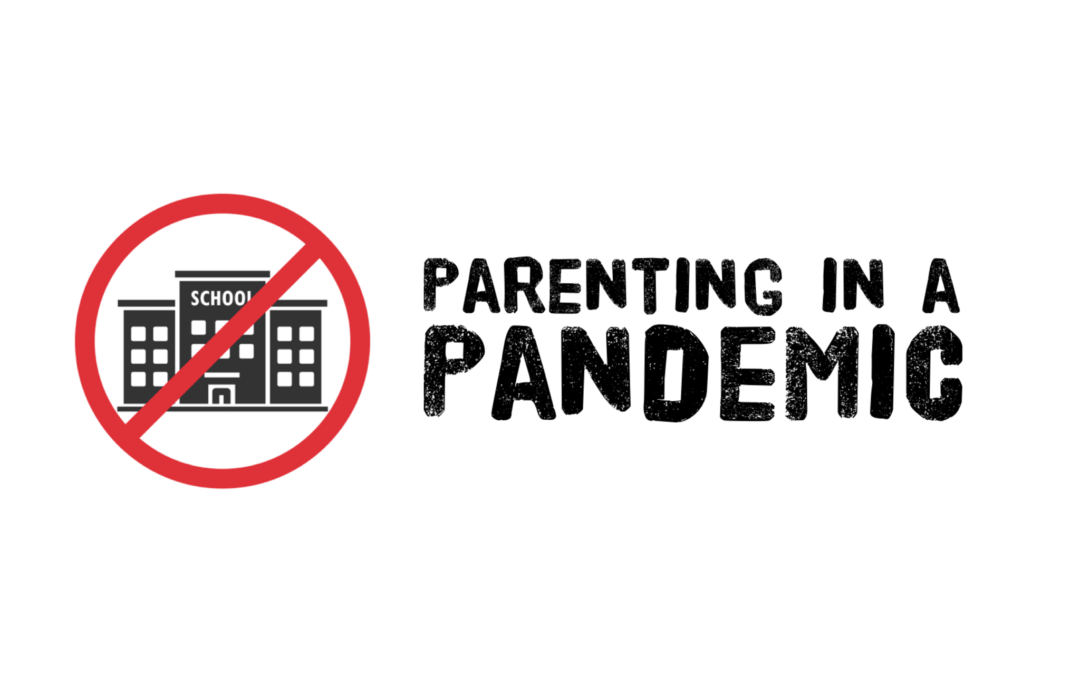Across the nation, lives have been turned upside down. Many of us have been asked, if not ordered, to stop participating in the routines that have become the fabric of family life – school drop offs, recreational and sports activities, play dates, eating out, shopping, and family outings. Instead, in its place, parents are faced with children and their seemingly endless stream of unstructured time.
This can be an overwhelming challenge to all of us, but particularly for those parents who are now having to take on the impossible task of being a full time employee at the same time as being a full time parent. This is, of course, beyond stressful. And if this is you, know that you are on my mind.
But as it seems more and more likely that this is not going to end anytime soon, I also am thinking a lot about our kids. Their little underdeveloped brains are meant to be shaped by what’s happening around them. So how will growing up amid this pandemic impact them?
Think back for a minute to a time when you were trying to talk with someone (a partner, a friend, a parent, a boss) about something important to you, but they wouldn’t give you their full attention. Maybe they were texting someone else, or scrolling on their phone, or continuing to do whatever they were doing before you showed up, refusing to pause for even a minute.

There you are, trying to communicate, engage, connect, with only 50% of the equation participating.
Cue frustration.
While sometimes our goal is to convey a specific message to other people, more often than not we are needing something much bigger than that. Empathy, support, validation, reinforcement, encouragement, problem-solving, love, etc.
I know this because I’ve had my own first hand experiences of it with my husband. I can think back to many moments when I’ve approached him and wanted to talk. A few minutes into the dynamic of me talking at him while he does his own thing, I’ll complain “you’re not even listening to me.” He’s quick to challenge my accusation as he spits back whatever words I just said.
Ok, so (annoyingly) I guess I’m wrong on that. He IS listening. But it’s obviously not just the intake of the message that I’m looking for. I’m looking for a dynamic interaction. One that responds humanly, with care and attention. I’m looking to feel like I’m important enough to pay attention to, and that I’m not alone (whether that be to commiserate in my pain or to celebrate in my joy).
Have you been there?
This is what our children are seeking when they approach us too. Even now. Especially now. I say this not to add further stress to your plate. You have enough. But we need to understand what’s happening when our children completely lose it because we’ve given them one too many “uh huh, mm hmms.”

So what do we do about it? Because the reality of life right now means that many of us are going to find ourselves in the position of having to multitask kids and work. I’ve got a few tools to help.
Wholeheartedly connect when you can. Ok, so you’ve got hours of work scheduled into your day. Let’s accept that. But take advantage of your non-work hours and devote as much as you can to focused interaction with your kids.
This means no multi-tasking! Put the phone down, turn off the TV, get on the floor, and play! 10 minutes of true engagement with your children is so much better than 1 hour of pretending to attend to them while you’re really thinking about or doing something else (Just think back to those experiences you’ve had when others have done this to you!)
If you can schedule some of this connection time early in your day, it can help “fill your child’s bucket” and allow them to generate a little more patience for you as you go forward in the day.
When you can’t connect, offer a time when you can. The reality of life right now is you’re likely going to have plenty of time when you’re in the same vicinity as your child (if not an arms-length away), and not able to offer that craved undivided attention. Instead of doing the whole placating thing and spewing a never-ending amount of half-hearted responses, give your child a time when you can provide them your undivided attention again.
For older kids, this can be as easy as telling them the specific time when you’ll be able to take a break from work and engage with them. For little ones, you’ll have better luck if you can anchor it to something in their day that they are familiar with (i.e after snack time, after lunch, after naps, etc). Then by all means, do your absolute best to follow through!
And lastly, address their feelings. This is a hard time for all of us, and our kids are no different. Their entire worlds have just been turned upside down. Little ones might be confused about this and just trying to adjust to the changes, while older kids might have anxiety and fears in response to what’s happening in the world around them. No matter what, there’s going to be feelings. And, as their parents, it’s our job to help them with those feelings.
So, at a time when you’re able to be fully present, ask them to share their feelings about what’s going on in general. “What’s it like to not go to school? What are you missing the most? Who are you missing the most? What questions do you have about why we’re spending so much time at home?”
And then ask them to share their feelings about your work. “How do you feel when Mama can’t play? What did you want to share with me? What’s it like to have to wait?”
After first allowing them time to get it all out, apologies and hugs can go A LONG way in helping children to feel grounded and cared for again. Speaking from my own experience, the most powerful tool I have in my toolbelt is a tenderly given hug. I can feel their little bodies relax as they literally breathe out a sigh of relief.
Read more about repairing conflicts with your children here.
While these things will not eliminate the tears, tantrums, or difficult behaviors, they will hopefully help to reduce the frequency and intensity when they do happen. And the beautiful thing about that is, when your kids are happy, it is so much easier for YOU to be happy! And who can argue with that?!
____
Dana Basu, PsyD is a licensed clinical psychologist at EverGROW therapy and founder of Everything But Crazy, an online resource for parents. She provides individual therapy, support groups, and online resources for parents in Orange County and throughout the state of California via online therapy. She specializes in working with the highly sensitive person and people with difficult childhood experiences, trauma, parenting stress, and chronic guilt.
Want more? Check out these other posts that might help you navigate these uncharted waters.
7 Steps for When You’re Losing It
When Your Magic Wand is Broken


